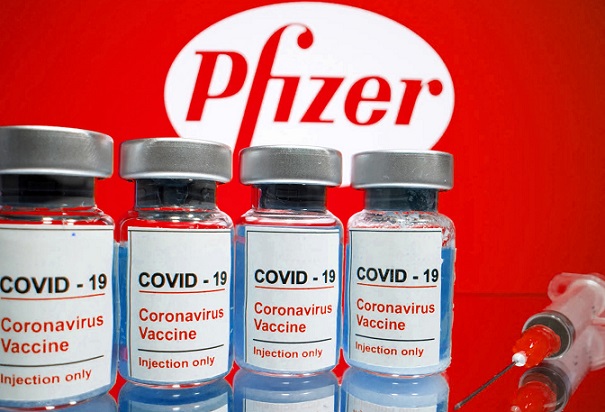BREAKING! Hong Researchers Discover That COVID-19 Vaccines Disrupts Insulin Response in Type 2 Diabetes!
Nikhil Prasad Fact checked by:Thailand Medical News Team Nov 06, 2025 3 months, 2 days, 14 hours, 19 minutes ago
COVID-19 Vaccines and Diabetes Risk
A groundbreaking study by Hong Kong researchers has revealed that repeated doses of mRNA COVID-19 vaccines may temporarily weaken insulin sensitivity in individuals with Type 2 Diabetes (T2D). While vaccines remain essential in preventing severe COVID-19, the study highlights that they could influence how the body regulates blood sugar in people already struggling with metabolic issues. This
Medical News report explores how the SARS-CoV-2 spike protein, triggered by mRNA vaccines, interacts with the body’s insulin pathways and why some diabetic patients should closely monitor their glucose levels after booster shots.
 Hong Researchers Discover That COVID-19 Vaccines Disrupts Insulin Response in Type 2 Diabetes
The Study and Its Findings
Hong Researchers Discover That COVID-19 Vaccines Disrupts Insulin Response in Type 2 Diabetes
The Study and Its Findings
The research team, led by scientists at the Hong Kong Baptist University and the University of Hong Kong, conducted extensive experiments on both mice and human subjects. In laboratory mice, four consecutive doses of the mRNA COVID-19 vaccine led to higher levels of spike protein and reduced insulin sensitivity. Tests showed the animals had increased blood glucose levels and impaired glucose tolerance, key signs of developing insulin resistance.
When examining human volunteers—180 participants divided into healthy, pre-diabetic, and diabetic groups—the researchers observed similar patterns. Two weeks after receiving booster doses of the mRNA vaccine, around 66% of Type 2 diabetes patients displayed higher insulin resistance, indicated by increased HbA1c and triglyceride-glucose (TyG) levels. Healthy participants and pre-diabetic individuals, however, did not show significant metabolic disturbances.
How the Spike Protein Disrupts Insulin Function
The study found that the spike protein produced after vaccination can bind to several important cellular receptors, including ACE2, TLR4, and estrogen receptors (ER). These receptors are not only involved in viral entry but also play crucial roles in metabolism. By interacting with these receptors, the spike protein disrupts the insulin signaling process, reducing the body’s ability to respond effectively to insulin. This disruption activates inflammatory and metabolic pathways such as NF-κB, AMPK, and MAPK, which are often linked to diabetes progression and energy imbalance.
Metformin Offers a Protective Effect
Interestingly, the researchers discovered that metformin—a common diabetes medication—appears to counter these adverse effects. In both human subjects and animal models, metformin users showed better insulin sensitivity after receiving booster doses. Laboratory tests confirmed that metformin restored proper insulin signaling in cells exposed to the spike protein without diminishing the vaccine’s immune benefits. This suggests that continuing metformin therapy could help diabetic individuals maintain glucose balance during vaccination periods.
Implications for Diabetic
Patients
The authors emphasized that the results should not discourage vaccination. Instead, they call for greater awareness and monitoring of blood sugar levels in diabetic patients receiving COVID-19 boosters. They also propose that metformin and similar drugs activating the AMPK pathway could be valuable adjuncts for managing post-vaccination metabolic effects.
The study sheds light on how the immune response stimulated by vaccines can interact with the body’s complex metabolic systems, particularly in vulnerable individuals. By identifying pathways such as ACE2 and TLR4 as critical links between spike proteins and insulin resistance, the research opens new avenues for safer vaccine strategies and better post-vaccine care for diabetics.
In conclusion, while COVID-19 vaccines remain a vital tool against severe disease and death, individuals with diabetes may experience temporary disruptions in insulin function. Ongoing glucose monitoring and continued metformin use can help maintain metabolic stability after booster shots. Understanding these interactions could lead to improved vaccine protocols and tailored diabetes management strategies in the future.
The study findings were published in the peer reviewed journal: MedComm
https://onlinelibrary.wiley.com/doi/10.1002/mco2.70469
For the latest COVID-19 News, keep on logging to Thailand
Medical News.
Read Also:
https://www.thailandmedical.news/articles/vaccine-news
https://www.thailandmedical.news/articles/diabetes
https://www.thailandmedical.news/articles/coronavirus
